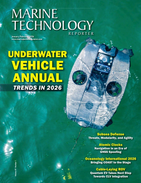Marine Technology Reporter Blogs - airborne
Composites X Steel Deepwater Pipes

The development of pipes that can withstand high pressure, heat and corrosion in deepwater locations such as offshore Brazil and the GoM and WA is continuous. For many years steel piping dominated the O&G industry but with pre-salt projects beyond 2,000 meters deep and corrosive enhanced oil recovery techniques widely being used in the industry, pipeline manufacturers have been looking for more flexible and robust materials. France's Technip, which is a world leader in pipe manufacture, uses layered steel with a stainless steel or plastic lining for main offshore pipes. However, British engineering company Magma Global and Dutch company Airborne are pioneering composite pipes made from a fusion of high-end fibers and plastics which are up to 90% lighter than steel pipes and do not corrode.
New Airborne Survey Technology

Airborne geophysical surveying is a process of measuring the variation in several key physical or geochemical parameters of the Earth. The most important parameters measured are conductivity, magnetic susceptibility, density, and radioactive element concentration. Any change in the Earth's near-surface that causes a measurable change in these parameters presents a potential application for airborne geophysics. Since 2000 CGG has been offering high-end airborne survey capability through the global merger of the leading airborne geophysical survey companies, which then joined the CGG group in 2013. CGG’s new time-domain electromagnetic solution maps shallow to deep geology in one pass.

 February 2026
February 2026



